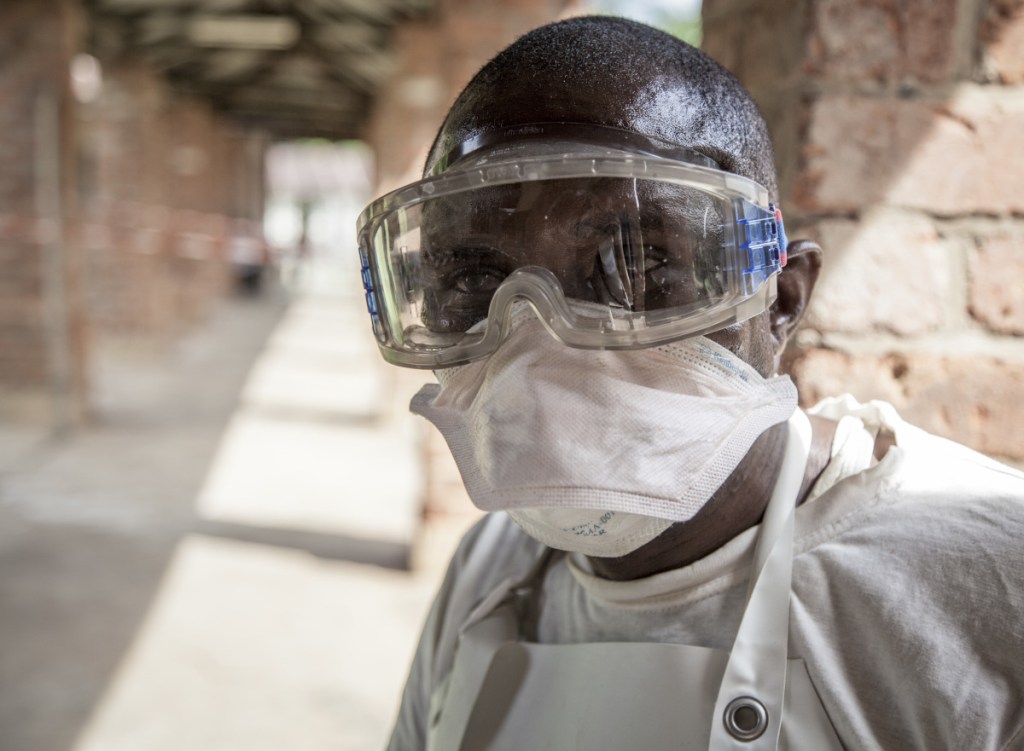NAIROBI, Kenya — Congo has confirmed a case of Ebola in Mbandaka, a city of 1.2 million, marking the first urban case in the latest outbreak of the disease.
The World Health Organization’s lead response official called Thursday’s new confirmed case “a game changer.”
Ebola is much harder to contain in urban areas, so this development compounds the risk of contagion and elevates the outbreak to the most serious since an Ebola epidemic that raged across West Africa between 2014 and 2016.
Previously, confirmed cases had been limited to an extremely remote area more than 100 miles south of Mbandaka, in the rain forest of Congo’s Équateur province. The case in Mbandaka is only the third confirmed case of the current outbreak; 20 others are probable, and 21 are suspected, bringing the total of potential cases to 44. The death toll is now 23.
“This is a major development in the outbreak,” said Peter Salama, the WHO’s deputy director general of emergency preparedness and response. “We have urban Ebola, which is a very different animal from rural Ebola. The potential for an explosive increase in cases is now there.”
The port city of Mbandaka lies on the eastern bank of the Congo River, Africa’s second longest after the Nile. Tens of millions of people live along the river, and the capitals of Congo, the Central African Republic and Congo Republic lie along it and its tributaries.
Ebola is notoriously hard to contain, though recent outbreaks in Congo have been managed swiftly by the World Health Organization and Congolese health officials, gaining the government there a reputation as one of the continent’s most prepared. Ebola is endemic in Congo, and this is the ninth outbreak of the disease there since the 1970s. Last May, a small outbreak resulted in five confirmed cases and four deaths in a province neighboring Équateur.
The outbreak in West Africa that started in 2014 reached epidemic proportions and was the worst ever recorded, infecting more than 28,000 and killing more than 11,000. A concurrent but much smaller and unrelated Ebola outbreak took place in Congo in 2014 as well. The WHO was accused of responding slowly in 2014, and the organization has taken pains to ensure it is both acting more quickly and being seen as doing so this time around. The organization’s head, Tedros Ghebreyesus, visited the affected area himself earlier this week.
The disease causes internal bleeding and spreads rapidly through contact with small amounts of bodily fluid. Its early symptoms are not obvious, and the worst effects may take weeks to show. It is often transmitted to humans through the consumption of contaminated meat, but it can also be acquired through any kind of close contact with an infected animal.
The international response to the current Congo outbreak has been substantial and is expected to grow in size and urgency after the announcement of a confirmed urban case. On Wednesday, the WHO delivered 4,000 injections of an experimental vaccine with proven efficacy in recent trials, and more batches are expected soon.
The WHO said it is also deploying 30 “experts” to Mbandaka to “conduct surveillance in the city and is working with the Ministry of Health and partners to engage with communities on prevention and treatment and the reporting of new cases.”
Persistent rain and lack of roads have hampered the effort to contain the outbreak so far. Before Thursday, cases had been confirmed only in Bikoro, a small town whose health clinic has “limited functionality,” according to the WHO. Helicopter and motorcycle are the only ways to reach Bikoro from Mbandaka, but an airstrip has been rapidly cleared for small planes to land with supplies.
Part of the difficulty in deploying the vaccine is that it must be transported and stored at between minus-60 and minus-80 degrees Fahrenheit, which requires powerful refrigerators. The vaccine, produced by the pharmaceutical giant Merck, is not yet licensed, although the WHO has cleared it for “compassionate use.” Its deployment is being financed by Gavi, the Vaccine Alliance, which is Geneva-based.
Send questions/comments to the editors.



Success. Please wait for the page to reload. If the page does not reload within 5 seconds, please refresh the page.
Enter your email and password to access comments.
Hi, to comment on stories you must . This profile is in addition to your subscription and website login.
Already have a commenting profile? .
Invalid username/password.
Please check your email to confirm and complete your registration.
Only subscribers are eligible to post comments. Please subscribe or login first for digital access. Here’s why.
Use the form below to reset your password. When you've submitted your account email, we will send an email with a reset code.